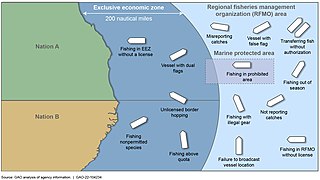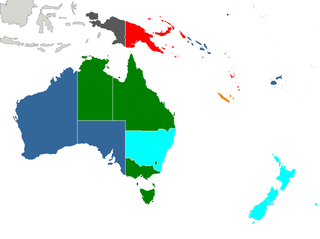Law enforcement agencies

The National Police Agency is the top law enforcement body in Taiwan with its subordinate Criminal Investigation Bureau.
Crime in Taiwan ranges from food adulteration, bombing, assassination attempts, hostage crisis, murder etc. [1] However, crime statistics show that crime rates in Taiwan are among the lowest in the world, and are relatively low compared to much of the developed world. A 2020 report named Taiwan the second-safest country in the world, based on low crime rates and a high number of survey respondents who indicated that they felt safe walking alone at night. [2]

The National Police Agency is the top law enforcement body in Taiwan with its subordinate Criminal Investigation Bureau.
Taiwanese and foreign women and girls are sex trafficked in Taiwan. They are raped and harmed in brothels, hotel rooms, and other locations throughout the country. [3] [4] [5] [6] [7]
Marijuana is criminalized in Taiwan with strict penalties for possession, production, and distribution. [8]
Taiwan's overseas fishing fleet has been criticized for a history of abuse and a lack of protection for migrant laborers, often from Southeast Asia. Official Taiwanese sources put the number of foreign workers aboard Taiwanese vessels at 26,000 but NGOs and US government agencies put the figure around 160,000. Foreign fishermen frequently report non-payment, long work hours, and verbal and physical abuse at the hands of their captains and officers, who are often Taiwanese. [9] In recent years Taiwan has made significant progress on the issue, but abuse remains widespread. In terms of human rights the distant waters fishing fleet lags far behind the rest of Taiwanese industry. [10]
A 2020 Greenpeace investigation found Taiwanese vessels in the Atlantic Ocean engaged in illegal, unreported and unregulated fishing. They also found significant evidence of the abuse of foreign laborers. They also documented Taiwanese fishing companies using flags of convenience to obscure vessel ownership as well as unreported at sea transfers of fish. [11] Taiwanese fisheries conglomerate FCF was specifically singled out for criticism for links to illegal fishing and forced labor. [12]
In October 2020 the US Department of Labor added the Taiwanese distant waters fleet's products to its list of goods produced by child or forced labor. [13] In May 2021 the Control Yuan ordered the Ministry of Foreign Affairs, the Ministry of Labor, and the Fisheries Agency to address the issue and heavily criticized their lack of action. [14]

The Coast Guard Administration of the Ocean Affairs Council, also known as the Taiwan Coast Guard or R.O.C. Coast Guard, is charged with maintaining law and order, protecting the resources of the territorial waters of the Republic of China (Taiwan), which surrounds Taiwan, Penghu, Kinmen, Matsu Islands, Green Island, Orchid Island, Pratas Island (Tungsha/Dongsha), and Nansha Islands as well as providing a first line of defense along coastal areas against smugglers and illegal immigrants. The CGA is considered a civilian law enforcement agency under the administration of the Ocean Affairs Council of the Executive Yuan, though during emergencies it may be incorporated as part of the Republic of China Armed Forces.
Taiwan is a multi-party democracy. The 2000 presidential victory of Democratic Progressive Party (DPP) candidate Chen Shui-bian followed more than 50 years of rule by the Kuomintang (KMT) and marked the first transition from one political party to another in the Taiwanese history, reported by a Government Information Office (GIO) website as the "first ever in Chinese history". This followed gradual democratic reforms since the 1980s and 1990s; most notably, martial law was lifted in 1987, and the Temporary Provisions Effective During the Period of Communist Rebellion were repealed in 1991 for Republic of China Constitution to be effective in Taiwan. The human rights record in Taiwan is generally held to have experienced significant transformation since the 1990s.

Illegal, unreported and unregulated fishing (IUU) is an issue around the world. Fishing industry observers believe IUU occurs in most fisheries, and accounts for up to 30% of total catches in some important fisheries.
Taiwan is primarily a destination for men, women, and children trafficked for the purposes of forced labor and sexual exploitation. It is also a source of women trafficked to Japan, Australia, the United Kingdom, and the United States. Women and girls from the People's Republic of China (P.R.C.) and Southeast Asian countries are trafficked to Taiwan through fraudulent marriages, deceptive employment offers, and illegal smuggling for sexual exploitation and forced labor. Many trafficking victims are workers from rural areas of Vietnam, Thailand, Indonesia, and the Philippines, employed through recruitment agencies and brokers to perform low skilled work in Taiwan’s construction, fishing, and manufacturing industries, or to work as domestic servants. Such workers are often charged high job placement and service fees, up to $14,000, resulting in substantial debt that labor brokers or employers use as a tool for involuntary servitude. Many foreign workers remain vulnerable to trafficking because legal protections, oversight by authorities and enforcement efforts are inadequate.
According to the United States Department of State, "Thailand is a source, destination, and transit country for men, women, and children subjected to forced labour and sex trafficking." Thailand's relative prosperity attracts migrants from neighboring countries who flee conditions of poverty and, in the case of Burma, military repression. Significant illegal migration to Thailand presents traffickers with opportunities to coerce or defraud undocumented migrants into involuntary servitude or sexual exploitation. Police who investigated reaching high-profile authorities also received death threats in 2015.

China has one-fifth of the world's population and accounts for one-third of the world's reported fish production as well as two-thirds of the world's reported aquaculture production. It is also a major importer of seafood and the country's seafood market is estimated to grow to a market size worth US$53.5 Billion by 2027.
The Government of the Republic of Korea does not meet the minimum standards for the elimination of trafficking. The government continues to make improvements but South Korea has been lowered to Tier 2. The government demonstrated serious and sustained efforts by identifying and providing services to a comparable number of victims relative to the previous reporting period, increasing inspections of entertainment businesses, and increasing efforts to reduce the demand for commercial sex acts. Although the government meets the minimum standards, it did not adequately address labor trafficking; the government investigated and prosecuted fewer cases, and penalized and deported trafficking victims due to inadequate identification efforts.

Thai Union Group is a Thailand-based producer of seafood-based food products. It was founded in 1977, and was listed on the Stock Exchange of Thailand (SET) on 22 November 1994.
Human trafficking is a major and complex societal issue in Myanmar, which is both a source and destination for human trafficking. Both major forms of human trafficking, namely forced labor and forced prostitution, are common in the country, affecting men, women, and children. Myanmar's systemic political and economic problems have made the Burmese people particularly vulnerable to trafficking. Men, women, and children who migrate abroad to Thailand, Malaysia, China, Bangladesh, India, and South Korea for work are often trafficked into conditions of forced or bonded labor or commercial sexual exploitation. Economic conditions within Myanmar have led to the increased legal and illegal migration of citizens regionally and internationally, often to destinations as far from Myanmar as the Middle East. As of July 2022, Myanmar remained on the lowest tier of countries in the Trafficking in Persons Report. The border regions of Myanmar, including Shwe Kokko, are known human trafficking destinations.

Human trafficking is a crime in New Zealand under Section 98D of the Crimes Act 1961. In 2002, the New Zealand Government ratified the Protocol to Prevent, Suppress and Punish Trafficking in Persons, especially Women and Children, a protocol to the United Nations Convention against Transnational Organized Crime (UNTOC). New Zealand participates in efforts to combat human trafficking in the Asia-Pacific region, and has a leadership role in the Bali Process on People Smuggling, Human Trafficking and related Transnational Crime.

Prostitution in Oceania varies greatly across the region. In American Samoa, for instance, prostitution is illegal, whereas in New Zealand most aspects of the trade are decriminalised.
Transshipment or transhipment at sea is done by transferring goods such as cargo, personnel, and equipment from one ship to another. It is a common practice in global fisheries and typically takes place between smaller fishing vessels and large specialized refrigerated transport vessels, also referred to as “reefers” that onload catch and deliver supplies if necessary.

The maritime industries of Taiwan are a large part of Taiwan's economy. Industries of particular importance are shipbuilding, boat building, maritime transport, aquaculture, mariculture, commercial fishing, seafood processing, offshore wind power and various forms of tourism. Deep sea mining, especially of dormant hydrothermal vents, is also being considered for the future. In 2018 Taiwan was the fourth largest yacht building nation. Taiwan is home to a number of maritime museums and maritime colleges.
The fishing industry in Thailand, in accordance with usage by The World Bank, the UN's Food and Agriculture Organization (FAO) and other multinational bodies, refers to and encompasses recreational fishing, aquaculture, and wild fisheries both onshore and offshore.
FCF Co, Ltd. (FCF) is a privately held Taiwanese seafood conglomerate. They are one of the largest tuna traders in the world.

Sex trafficking in Taiwan is human trafficking for the purpose of sexual exploitation and slavery that occurs in the Taiwan, which is a country of origin, destination, and transit for sexually trafficked persons.

The Maritime Militia, also called the Fishing Militia, is one of the three forces, next to the China Coast Guard (CCG) and the People's Liberation Army Navy (PLAN), used in maritime operations by the People’s Republic of China (PRC).
Forestry in Taiwan was historically a significant industry. The logging of most of Taiwan's old growth forest has led to the sunset of the industry with remaining stands protected by law. Illegal logging remains a significant threat, especially to the oldest and most valuable trees.
Fisheries crime describes the wide range of criminal activity that is common along the entire value chain of the fishing sector. It often occurs in conjunction with Illegal, unreported and unregulated fishing (IUU), but next to illegal fish extraction include for example corruption, document fraud, tax evasion, money laundering, kidnapping, human trafficking and drug trafficking. The issue recently received increased attention in the UN, Interpol, and several other international bodies.
The China National Fisheries Corporation (CNFC) is a Chinese state owned enterprise which operates fisheries related businesses.